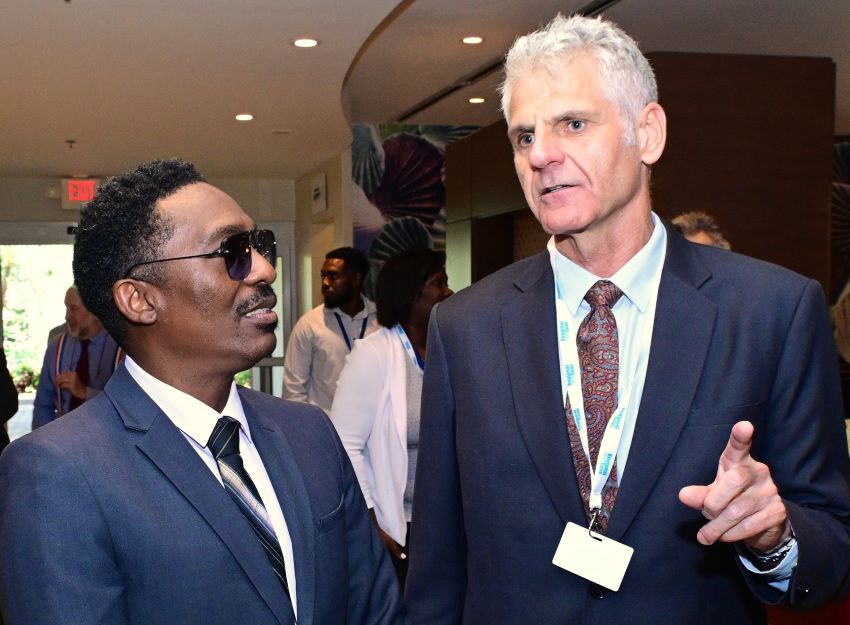
A focus on education and behavioural change is needed to transform the actions of individuals to preserve the ocean and its ecosystems.
Minister of the Environment and National Beautification, Green and Blue Economy, Adrian Forde, made this point as he addressed the opening ceremony of the 23rd Global Meeting of the Regional Seas Programme at the Courtyard by Marriott on Monday.
Noting the oceans and seas were a source of food and employment for millions of people across the world, Mr. Forde pointed out that they were under threat from sources such as direct discharges of waste water and pesticides.
“We are witnessing the declines in fish stocks and species and the change in migratory patterns of fish. Coral reefs, which are of particular importance in the Caribbean, are also under threat from pollution, ocean acidification and warming ocean temperatures,” he disclosed.
The Minister noted that these declines were as a result of mankind not acting in a responsible manner. However, he explained that while it was important to develop policies to manage these human activities that negatively impact the water, emphasis must also be placed on education and behavioural change.
“A change in the actions of individuals, such as reducing waste water by recycling and reducing the use of plastics, pesticides and fertilisers can assist in protecting the marine environment.
“Initiatives and activities at the regional and international levels, such as the Regional Seas Programme, need the support of individuals and communities to drive its success,” he said.
The Minister told those present that being responsible with the seas was crucial for the well-being of the planet and its inhabitants.
“We are seeking to implement sustainable fishing practices, reduce plastic pollution, introduce conservation areas and spatial planning, implement efficient waste disposal and engage in responsible tourism,” he said.
Mr. Forde told the delegates that their initiatives must support efforts to reduce greenhouse gas emissions to mitigate the impacts of climate change on the oceans, including sea level rise and ocean acidification.
The 23rd Global Meeting of the Regional Seas Programme is being hosted by the United Nations Environment Programme (UNEP) from November 20 to 23.
The meeting brings together heads of the 18 Regional Seas Conventions and Action Plans covering over 146 countries, representatives of the Global Multilateral Environmental Agreements, other UN entities and staff of UNEP. It is also expected to provide an opportunity for participants to deliberate on common action to achieve these global commitments.
